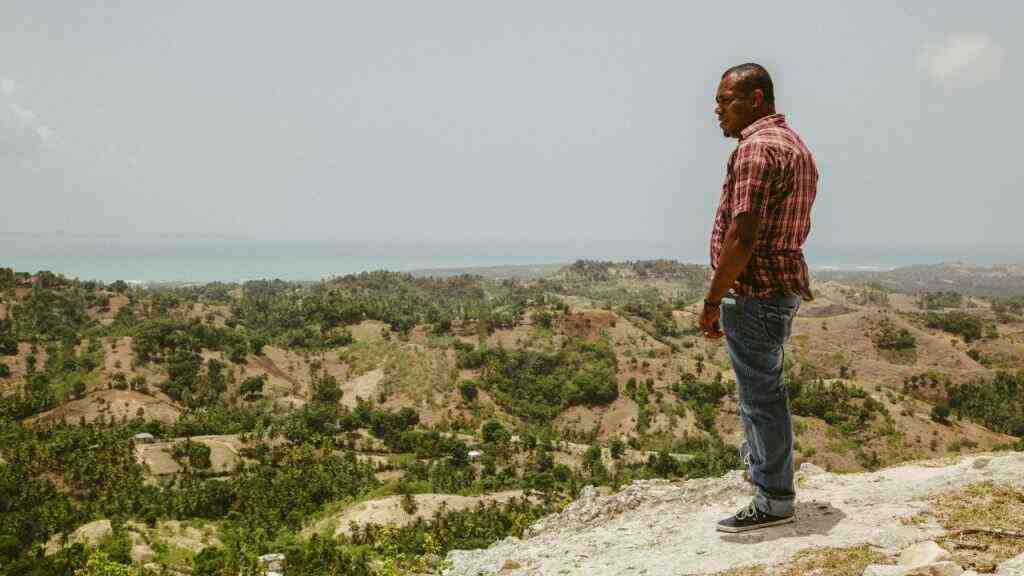Desperation Deepens in Haiti as Court Decision Blocks Deployment of UN-Backed Police Force
Haiti, a nation already plagued by rampant gang violence and political instability, finds itself in an even more precarious position following a Kenyan court ruling that blocks the deployment of a United Nations-backed police force. This decision has sent shockwaves through the country, leaving its citizens grappling with escalating violence, a sense of hopelessness, and an urgent need for a comprehensive solution to the ongoing crisis.
Heightened Insecurity and Spreading Fear
The absence of a robust external mission has led to a surge in violence, with gangs tightening their grip on the capital, Port-au-Prince, and beyond. According to Diego Da Rin of the International Crisis Group, this void could lead to a “tragic scenario” for Haiti. The statistics are staggering: in 2023, the number of reported killings more than doubled, reaching nearly 4,500, while kidnappings surged by over 80%, with approximately 2,500 cases. These figures underscore the dire need for immediate action to address the escalating violence and restore a sense of security.
Overwhelmed Police Force
Compounding Haiti’s challenges is the deteriorating state of its National Police. A recent U.N. report reveals that the police department is losing officers at an alarming rate, with over 1,600 leaving in 2023 and 48 reported killed. The report also highlights the inadequacy of equipment provided by the international community, with only 21 out of 47 armored vehicles operational due to damage sustained during anti-gang operations.
Public Outcry and Demands for Action
Haitians have expressed their dismay and frustration over the court ruling, calling for immediate action to address the crisis. Radio stations across the country have been flooded with calls from citizens demanding a plan B to address the escalating violence and restore stability.
Uncertainty Surrounding International Response
The Kenyan government has indicated its intention to appeal the court’s decision, but the timeline for this process remains unclear. Other countries that had pledged to contribute forces to the multinational mission have also expressed concern, leaving Haiti’s fate uncertain.
Caricom’s Response and Call for Emergency Meeting
The Caribbean Community (Caricom) has expressed its disappointment over the court ruling and called for an emergency meeting to address the implications and explore potential alternatives. Caricom’s Prime Minister, Roosevelt Skerrit, emphasized the need for a plan B in collaboration with the Haitian people.
Haiti’s Own Resources and Potential Solutions
Some experts believe that Haiti should focus on utilizing its own resources to combat gang violence, including the country’s military, which is still in its early stages of development. However, others argue that Haiti’s resources alone may not be sufficient to address the magnitude of the crisis.
Financial Assistance and Rebuilding Efforts
In the absence of an international mission, some Haitians have called for the funds allocated for the multinational mission to be redirected towards rebuilding the country’s own forces and providing financial assistance to those affected by the violence.
Personal Struggles and Plight of Ordinary Haitians
The impact of the crisis is felt deeply by ordinary Haitians like Marjorie Lamour, a mother of two who sells lingerie to support her family. She has been forced to flee her home twice due to gang violence and struggles to provide for her children. Her story highlights the desperate situation faced by many Haitians who are trapped in a cycle of violence and poverty.
Possible Diplomatic and Political Developments
Diego Da Rin of the International Crisis Group pointed out that the U.N. Security Council resolution did not specify that Kenya must lead the mission, leaving open the possibility for another country to take the reins without requiring additional meetings and approvals. However, he also expressed concern that the recent arrival of former Haitian rebel leader Guy Philippe, who opposes the Kenyan-led mission, could further complicate the situation and lead to more radical actions by desperate Haitians.
Conclusion
Haiti’s current predicament is a stark reminder of the urgent need for international cooperation and comprehensive strategies to address the root causes of violence and instability. The court ruling in Kenya has further compounded the challenges faced by Haiti, leaving its citizens in a state of despair and uncertainty. The international community must come together to devise a viable and effective plan B that can help Haiti restore peace, security, and hope for a brighter future.
